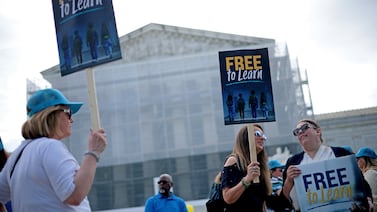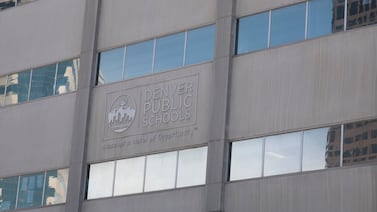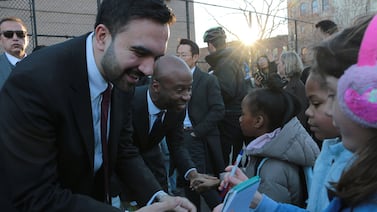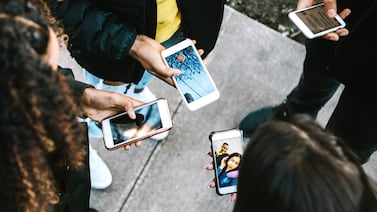Looking to run a voter registration drive at your school? Want to learn how to earn a high school diploma with a “seal of civic readiness,” demonstrating civic skills and knowledge? Trying to find out more about the NYC Mayor’s Office internship program?
Or maybe you want to get a head start on registering for the upcoming election, whether you’re 18 or not. (Those who are 16-17 can now pre-register so they are automatically registered when they turn 18.)
This information and more can be found on the “Youth Civic Hub,” an online portal launched on Friday, designed “by youth, for youth,” to increase youth civic engagement and electoral participation.
Led by the NYC Youth Agenda and Civic Coalition, this one-stop clearinghouse includes a wealth of information, ranging from internships and volunteer opportunities to voter registration tools and an elections portal with scorecards rating candidates on young people’s issues. It will soon have a “power map” explaining the different roles of elected officials, a glossary outlining the language commonly used in civic spaces, and a directory of various local organizations for young people to connect with.
The young people behind the portal are hoping to get it in the hands of New York City teachers, so they can share it with their students and expose them to “high-quality” civic opportunities across the five boroughs.
Creating the hub has been a yearslong project spearheaded by YVote, a teen-focused civic engagement nonprofit that is helping lead the larger NYC Civic Coalition.
“We’re not just helping voters, we’re trying to make the connections — who oversees what,” said Mia Payne, a 2022 graduate of Manhattan’s Talent Unlimited High School, alumnus of YVote, and a youth co-chair on the education transition team for Mayor Eric Adams.
“We just want to connect the dots of the roles and responsibilities [of government officials],” she said. Though young people often “just see whoever’s on the TV,” which is often the mayor or governor, it might make more sense to reach out to their city council member for school community issues, she said.
When Payne joined YVote in her sophomore year of high school, she asked why it was so hard to find out who represents you and what they do and believe. It turned out the organization was already working on solving this problem by building the hub. She believes the work they’re doing can serve as a blueprint for other states.
The portal comes at a pivotal moment, just months before November’s presidential election. In the 2022 midterm elections, just 7.6% of eligible Bronx voters ages 18-29 cast ballots and 15.3% of Queens young people voted, according to CIRCLE, an independent youth civic engagement research organization based at Tufts University. About 18% of Brooklyn voters in this age group cast ballots along with 18.8% in Manhattan and 23.4% in Staten Island. The statewide average, 19.8%, was lower than the national average of 23%.
The nation’s political polarization can turn young people off from wanting to be civically involved, Payne said, but she also believes that the hub can help provide different points of access for young people to feel more empowered.
“There’s a lot of mistrust and misinformation. We want to make this as cross-partisan as possible and straight facts,” Payne said. “The goal of the hub: You may not agree or be proud of your elected officials, but at the end of the day, the power is in the people’s hand. You have the ability to hold them accountable and elect someone else.”
Written in “teen-friendly” language the hub aims to reach young people, especially those in “civic deserts,” where there’s less broadband access and less exposure to election-related news and information.
Through the portal, young people can learn about various opportunities to get involved with communities: You can find out how to volunteer at a farm in Brooklyn’s Red Hook neighborhood, apply for an internship at a design museum in Manhattan, or try and land a civics-focused fellowship centered on such issues as criminal justice, voting rights, and media literacy.
“Many youth don’t know of any opportunities besides the ones in their schools, and the hub aims to change that,” said Afsana Rahman, a member of the hub youth working group and senior at the Queens High School for the Sciences at York College. (She became involved in the hub through her work in CUNY’s Intergenerational Change Initiative.)
The hub will be officially unveiled on Monday at the NYC Youth Agenda Policy Party, where young people will also share their policy recommendations for how to make the city more equitable for youth, based on thousands of surveys of teens across the city.
Amy Zimmer is the bureau chief for Chalkbeat New York. Contact Amy at azimmer@chalkbeat.org.






